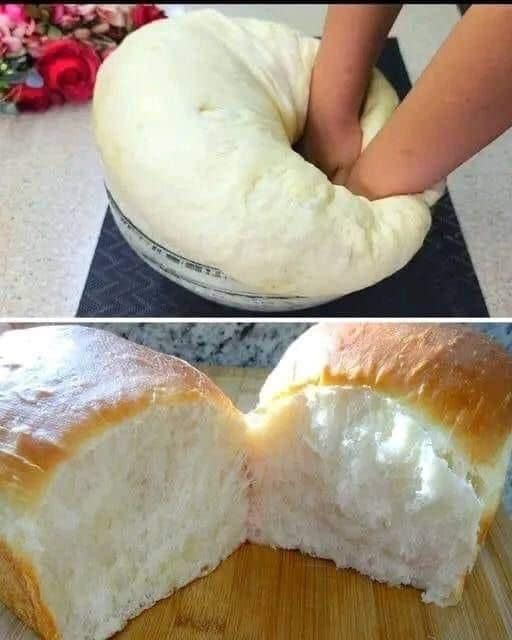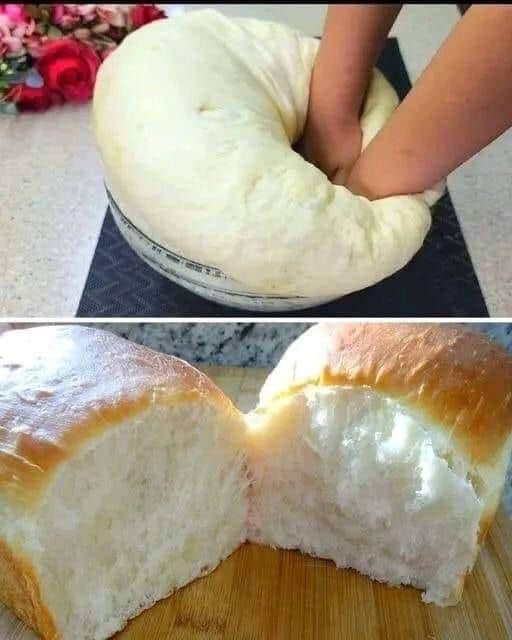Not required. You can include additional items such as seeds, herbs, or garlic to create different flavors.
GUIDELINES:
1. Simplify the text. Combine the powdered ingredients.
In a big bowl, mix together the flour, quick yeast, and salt. Combine them until they are evenly spread.
Could you please provide the text you would like me to simplify? Mix with water.
Add the water and mix the ingredients with a wooden spoon or spatula until a rough, sticky dough is formed. The dough may appear uneven, but that’s normal—it should be moist and sticky. You don’t have to knead or mix too much right now.
Could you please provide the text you would like me to simplify? Allow the dough to rest.

Cover the bowl well with plastic wrap or a kitchen towel. Allow the dough to sit at room temperature for 12 to 18 hours. This extended fermentation helps the dough to grow and acquire a delicious taste. The dough will rise and get bigger while it rests.
Please provide the text you would like me to simplify. Knead the dough.
After 12 to 18 hours, the dough will become very soft and sticky, with bubbles on top. Put some flour on your hands and on a clean surface. Then, carefully place the dough on the floured surface. Form the dough into a round shape, making sure not to press it down too hard. Don’t knead the dough now, just fold it a few times to give it shape.
Number 5. Heat up the oven and a large pot.
Put a heavy pot with a lid in the oven and heat it to 450°F (230°C). Allow the pot to get hot for at least 30 minutes. This makes sure the outside of the food is perfectly crispy when baking.
Please provide the text you would like me to simplify. Put the dough into the large pot.
While the cooking pot is heating up, allow the formed dough to sit on a piece of parchment paper. After heating, take out the hot pot from the oven carefully. Pick up the dough with the paper and put it in the pot. Put the lid on.
7. Cook in an oven.
Put the large pot back in the oven and bake the bread with a lid on for 30 minutes. After 30 minutes, take off the cover and bake for an additional 15 to 20 minutes until the bread is golden and crispy on top.
Could you please provide the text you would like me to simplify? Have fun and enjoy.
Take the bread out of the Dutch oven and allow it to cool on a metal rack before cutting it into slices. The bread will have a crispy crust and a light, fluffy inside.
The reason why No-Knead Bread is very popular.
1. Rewrite the text below in simpler terms. Make it easier to understand. Do not change the meaning or the information provided. Would you like to join us for a delightful evening of music and entertainment at our annual charity gala? This Achieve great results with little effort.
The charm of no-knead bread is how easy it is to make. Instead of using effort to knead, you allow time to do the job. The long fermentation process improves the taste of the dough, resulting in a simple and tasty rustic bread.
Please provide the text that you would like me to simplify. Making homemade artisan bread.
This technique creates a bread with a shiny, crunchy outer layer and a soft, chewy inside, similar to the bread you find in fancy bakeries. Using a Dutch oven that has been preheated is like using a professional steam oven, and this helps to make the crust that is characteristic of this dish.
Could you please provide the text that you would like me to simplify? Flexible and able to be personalized.
You can easily adjust this recipe to fit your preferences. You can add ingredients like herbs, garlic, cheese, or seeds to the dough to make different flavors. Whether you prefer a simple bread or something more creative, this recipe can easily be adjusted to suit your taste.
Please provide the text you would like me to simplify. Suitable for beginners.
For beginners in baking bread, this no-knead technique is a great way to begin. You don’t have to worry about using the right technique or kneading too much. If you let the dough rise well, you will definitely get a good loaf of bread.
Advice for Making Delicious No-Knead Bread
Use water at a normal temperature.

Ensure that the water you add to the dough is at room temperature or a little warm. If it’s too hot, the yeast could die; if it’s too cold, fermentation will be slower.
Allow the dough to rest for a sufficient amount of time.
The extended time for fermentation is very important for creating the flavor and texture of the dough. You should rest the mixture for at least 12 hours, but for an even richer taste, you can let it sit for up to 18 hours.
Achieve the perfect crust using a Dutch Oven.
Cooking in a hot Dutch oven helps to keep in steam, which makes a crust similar to those found in bakeries. If you don’t have a Dutch oven, you can use another pot with a heavy lid or put a tray of water in the oven to make steam.
Flour for Sprinkling:
Because the dough is very sticky, utilize

